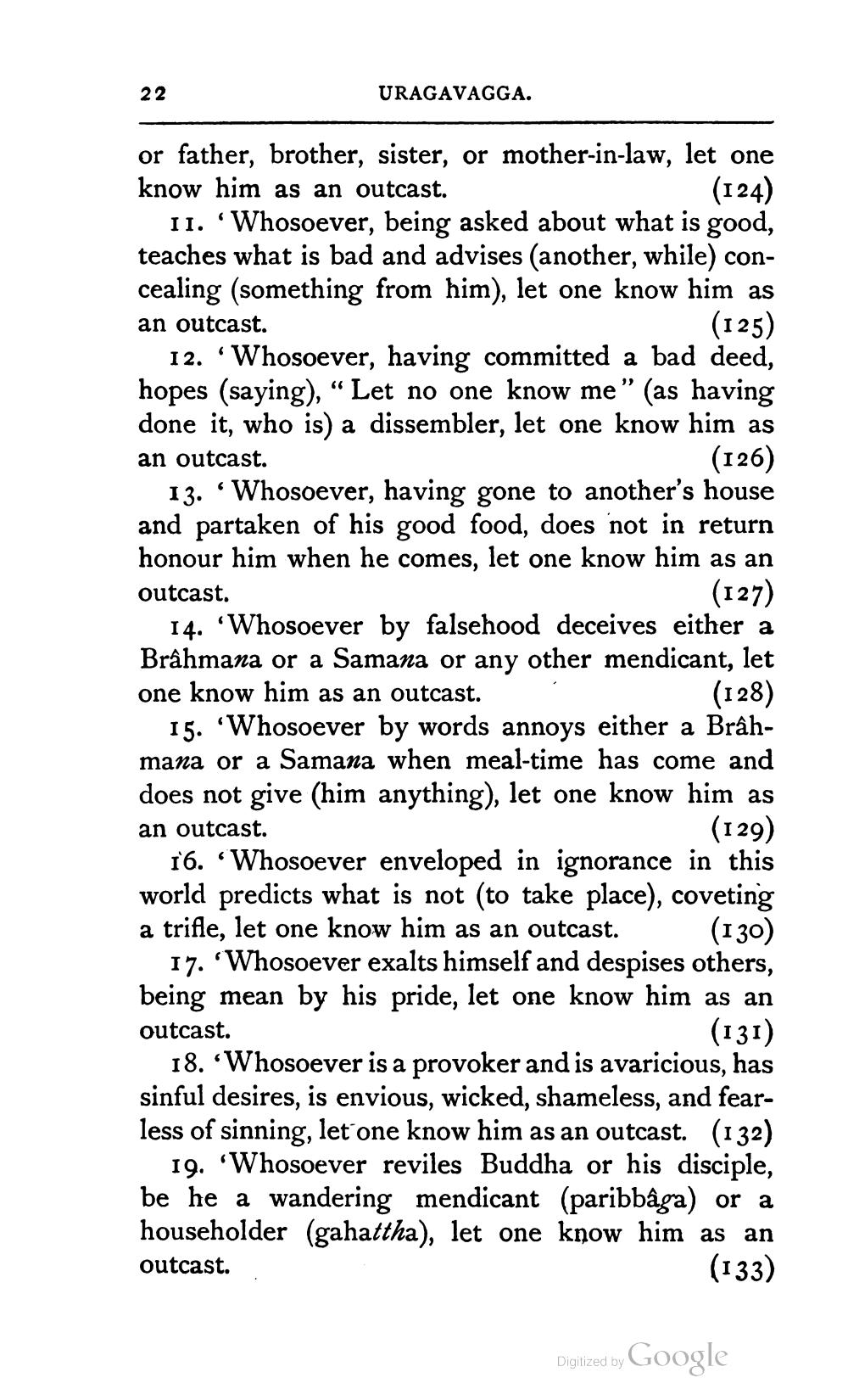________________
URAGAVAGGA.
or father, brother, sister, or mother-in-law, let one know him as an outcast.
(124) 11. Whosoever, being asked about what is good, teaches what is bad and advises (another, while) concealing (something from him), let one know him as an outcast.
(125) 12. Whosoever, having committed a bad deed, hopes (saying), “Let no one know me” (as having done it, who is) a dissembler, let one know him as an outcast.
(126) 13. Whosoever, having gone to another's house and partaken of his good food, does not in return honour him when he comes, let one know him as an outcast.
(127) 14. 'Whosoever by falsehood deceives either a Brâhmana or a Samana or any other mendicant, let one know him as an outcast.
(128) 15. “Whosoever by words annoys either a Brâhmana or a Samana when meal-time has come and does not give (him anything), let one know him as an outcast.
(129) 16. Whosoever enveloped in ignorance in this world predicts what is not (to take place), covering a trifle, let one know him as an outcast. (130)
17. 'Whosoever exalts himself and despises others, being mean by his pride, let one know him as an outcast.
18. “Whosoever is a provoker and is avaricious, has sinful desires, is envious, wicked, shameless, and fearless of sinning, let one know him as an outcast. (132)
19. "Whosoever reviles Buddha or his disciple, be he a wandering mendicant (paribbâga) or a householder (gahattha), let one know him as an outcast.
(133)
(131)
Digitized by Google




